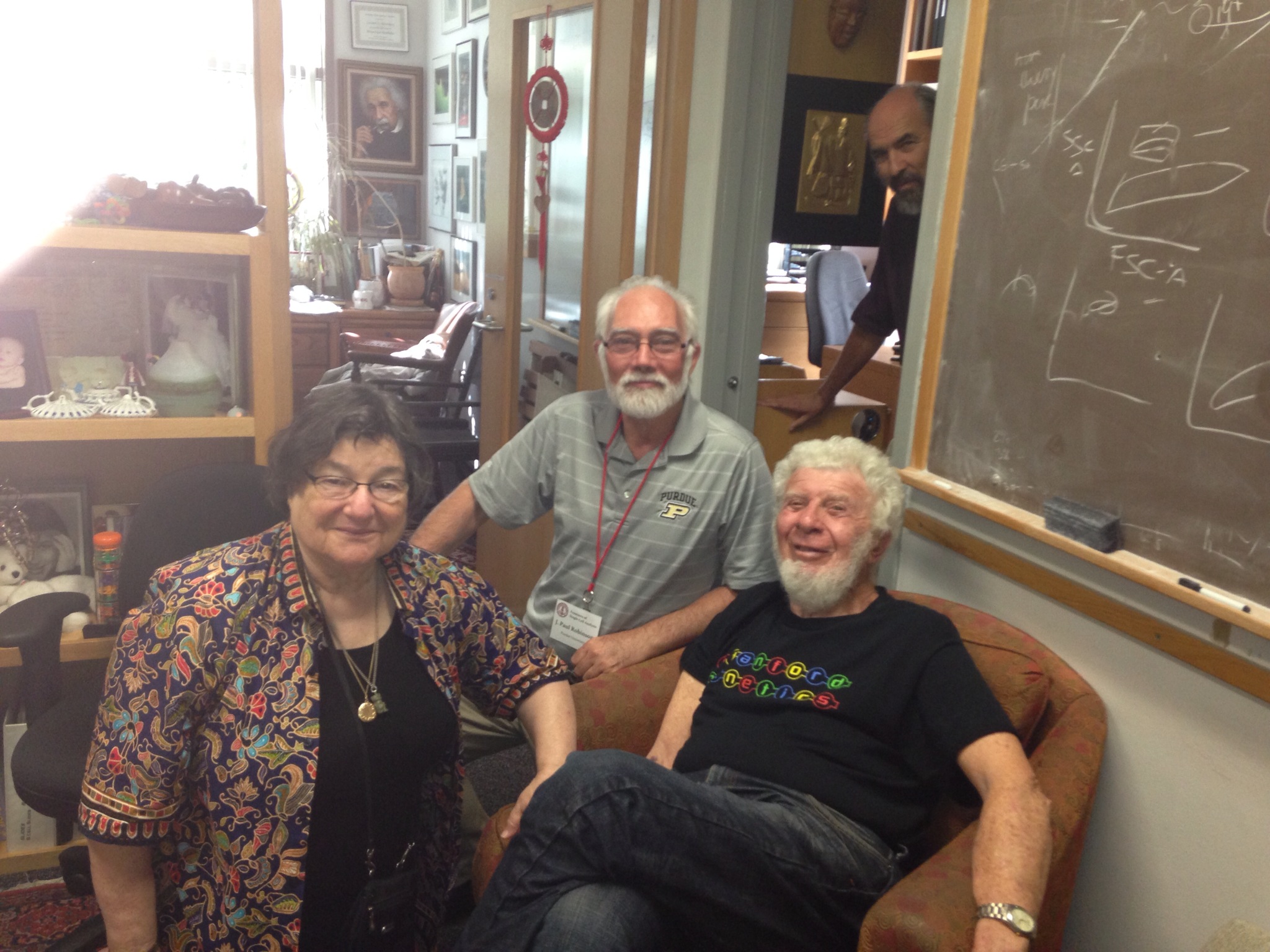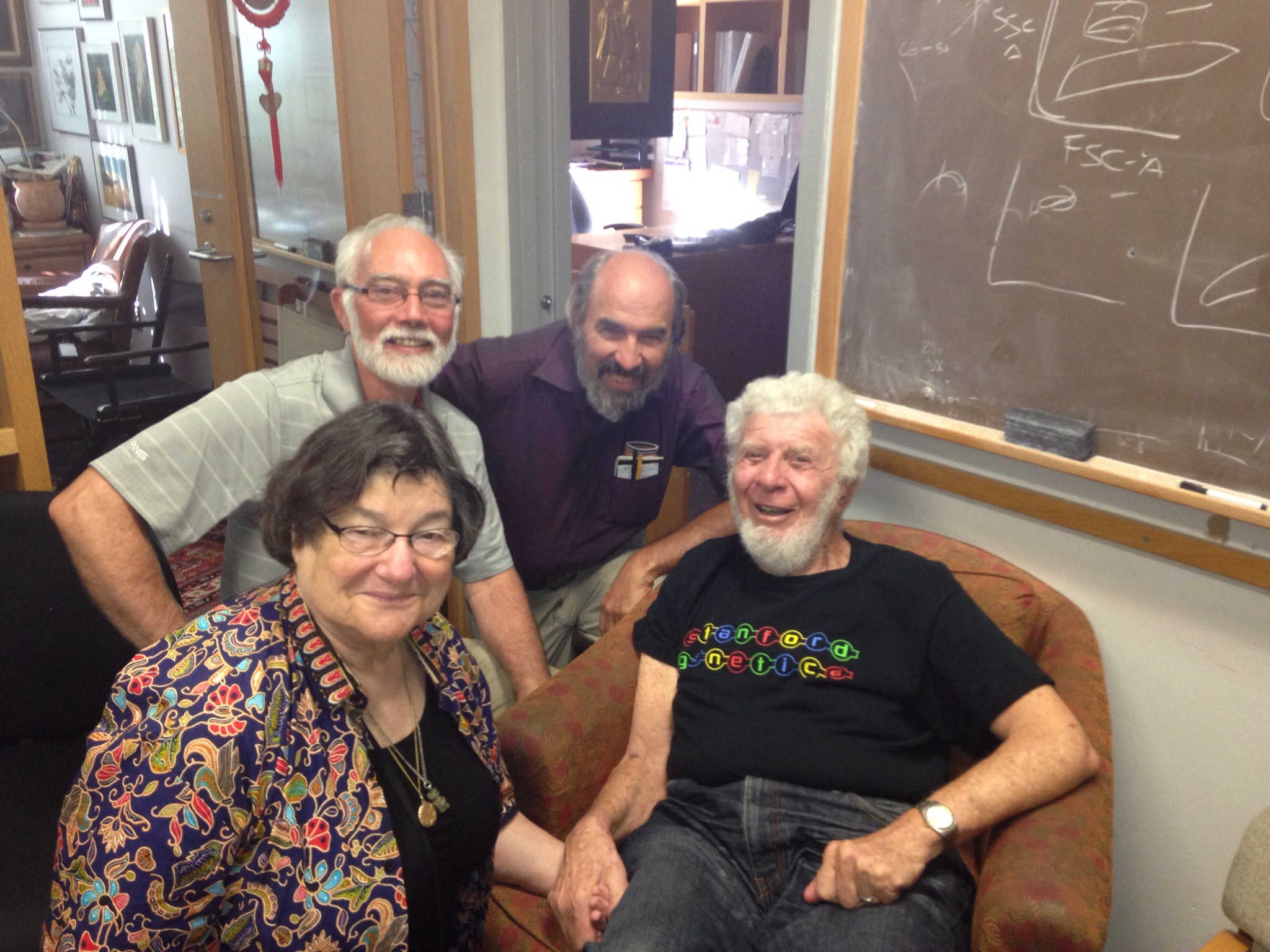October 28, 2013
Len Herzenberg passed away peacefully yesterday at Stanford Hospital, after a brief illness; he was 81. Lee Herzenberg, his wife of 60 years and life-long partner in science, was at his side.
We have lost a great scientist and innovator, a wonderful mentor, colleague, and friend.
Len was perhaps best known for bringing flow cytometry to the field of immunobiology. He was among the first to recognize the power of single cell analysis and how it could revolutionize our understanding of the immune system. In the late 1960s he put together a team at Stanford University to build the first fluorescence-based cytometers, using electrostatic charging of drops to sort individual cells. It is remarkable that almost 45 years later, the fundamental technology still has not changed, and has become a workhorse in nearly every immunology laboratory.
Len's laboratory was also responsible for bringing hybridoma technology to the US, from his sabbatical in Cesar Milstein's laboratory. At the time, Len uniquely recognized the incredible potential it had for transforming clinical and basic research and therapeutics; he urged early commercialization and distribution of useful hybridomas. His laboratory isolated many of the first monoclonal antibodies against human and mouse leukocytes, paving the way for decades of research. The laboratory made key contributions to defining MHC, the functions and differentiation of B cell and T cell subsets, and the genetics of mouse immunology.
During the 50 years that Len led the laboratory, he trained nearly 100 postdoctoral fellows and graduate students, a great many of whom have gone on to become world-renowned scientists in their own right. Over the years, Len was recognized with numerous prestigious awards: he was a member of the National Academy of Sciences, and was awarded the Novartis Immunology prize in 2004, and the Kyoto prize in 2006.
Notably, Len's contributions were not limited to science. He and Lee were always very active politically and socially -- working to overcome the backwards attitudes underlying McCarthyism, eugenics, nuclear proliferation, and later, the early stigmas and misinformation surrounding the early HIV epidemic. Len felt that scientists have a responsibility to bring their knowledge to the public forum to try to rectify misinformation and misguided politics.
Earlier this year, I had the privilege to interview Len and Lee for a special series in Annual Reviews of Physiology. They discussed many of these sociopolitical issues, and how that influenced their research. Both the video (about an hour long) and the text are available online; I recommend watching the video to listen to Len and Lee's remarkable stories in their own words. Links are listed below (or google "a conversation with Leonard Hezenberg") .
I hope everyone takes a moment, next time you see a FACS plot, run a sample, or analyze sorted cells, to think about the many contributions that Len made to the field, and the enormous impact he has had. As one of his postdoctoral trainees, I am grateful for his mentoring, and strive to emulate his commitment to science in my own laboratory.
ARP Video: <http://www.annualreviews.org/doi/story/10.1146/multimedia.2013.08.15.195>
Interview text: <http://www.annualreviews.org/doi/abs/10.1146/annurev-physiol-021113-170355>
_______________________________________________
Mario Roederer, Ph.D.
Senior Investigator, ImmunoTechnology Section
Vaccine Research Center, NIAID, NIH
40 Convent Dr., Room 5509
Bethesda, MD 20892-3015
Phone: 301 594-8491
FAX: 301 480-2788
------------------------------
Some photos...this photo was taken on 6 October 2013 in Len's office at Stanford. (left Lee Herzenberg, Right Len Herzenberg, back JPR)
and with Dave Parks as well....(photo Oct 6, 2013)

